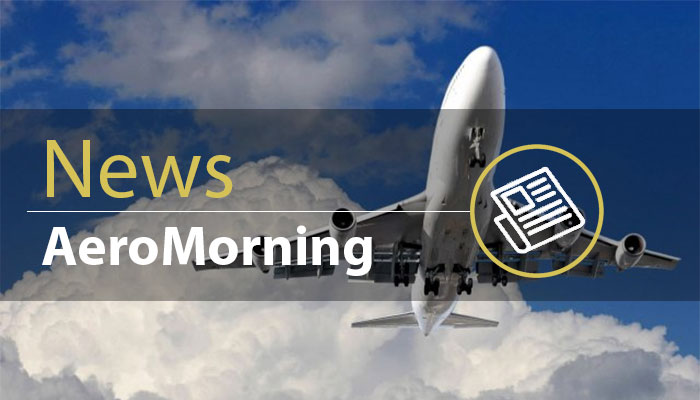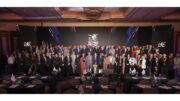“Deafening silence” from UN aviation body on its failing net zero scheme condemned by experts and climate activists
Climate campaigners have slammed ICAO, the UN body overseeing the aviation industry, for its “deafening silence” on the urgent need to upscale its climate mitigation scheme, after it ended its triennial meeting with no new commitment on emissions.
NGOs have been calling for shortcomings in the controversial Carbon Offsetting and Reduction Scheme for International Aviation (CORSIA) scheme to be addressed, and for ICAO to develop a credible near or medium term plan to tackle its emissions. But as the conference in Montreal drew to a close, no new commitments were announced.
Offsets under CORSIA, which only comes into force in 2027, are anticipated to cost less than €1 per tonne of CO2, which will by ICAO’s own assessment, only cost airlines between 0.2 to 0.6% of total aviation revenues, meaning that CORSIA is, according to leading NGO Transport & Environment, unlikely to deliver sufficient price signals to encourage the sector to decarbonise.
CORSIA also gives airlines the option of using so-called sustainable aviation fuels (SAF) to meet their offsetting obligation. But experts question whether the alternative fuel options such as crop-based or waste oil biofuels, are scalable or sustainable.
Now campaigners including aviation industry insiders are calling for changes to CORSIA, and for countries to implement solidarity levies on premium aviation (first and business class flights, as well as private jets), in spite of the Trump administration’s determination to “discourage the proliferation of such taxes”.
Aoife O’Leary, CEO and founder of Opportunity Green, said: “Airlines have already faced scrutiny for misleading passengers with exaggerated claims about so-called sustainable aviation fuels. Carbon credits schemes that rely on offsets and questionable fuels are repeating the same mistake – offering promises that look good on paper but fail to deliver in practice. For an organisation that is responsible for at least 4% of all global heating, all we really heard on decarbonising aviation was deafening silence. This lack of urgency from ICAO negotiations further emphasises the need for high-ambition countries to adopt targeted levies on luxury travel, a robust EU Emissions Trading Scheme on all international flights and advocate for a global emissions pricing scheme to ensure that the biggest polluters pay their fair share and that aviation contributes to real, lasting climate solutions. Otherwise aviation’s climate problem is going to continue to spiral out of control.”
Laurence Tubiana, Chair of the Global Solidarity Levies Task Force and COP30 Special Envoy to Europe, said:
“Airport capacity and fossil-fuelled aircraft fleets are expanding far faster than the rollout of clean fuels and zero-emission planes. Yet the aviation sector remains largely exempt from taxes and carbon pricing. An airline flying from London to the Maldives pays less in fuel tax than parents driving their children to school.
“A growing number of countries are now exploring levies on premium aviation – business, first class, and private jets – as a way to raise climate and development finance. These measures are proven, popular, and capable of generating substantial revenue.
“Wealthy premium flyers are responsible for far more warming – from both CO₂ and contrails – than economy passengers. They can and should contribute more to funding the green transition, in aviation itself and in support of wider climate and development goals.”
Finlay Asher, Aerospace Engineer and Co-Founder of Safe Landing, a community of aviation workers and enthusiasts challenging industry leaders to conform with climate science and reject dangerous growth, said:
“With the ICAO Assembly only held once every three years, all we’ve seen is the biggest aviation industry lobbyist pressuring countries to deliver carbon credits which even the CEOs of major airlines have discredited and described as “a joke”. The fact we heard nothing from the UN body that is supposed to be leading on tackling this issue when their plans are demonstrably failing means we need governments around the world to step up to the plate and apply a global solidarity aviation levy on luxury flying. It’s only fair that polluters pay their fare share, with 50% of flying emissions caused by just 1% of the world’s population, and this is the quickest and easiest way to help rebalance the scales.”
Katie Thompson, Former airline pilot and private jet captain and founder of Bumprints, an organisation dedicated to exposing the true climate cost of flying, challenging industry inaction, and helping travellers and workers understand the steps they can take to push for effective reform, said:
“ICAO is making no progress on building a genuinely credible plan to tackle its growing emissions, and the silence on the topic of climate change at this year’s Assembly was deafening. Meanwhile Trump’s administration is breathing down its neck with threats to ICAO’s funding unless it scraps its climate agenda. The planet can’t wait another three years for ICAO to get its act together, the climate crisis is happening now. Targeted levies on premium travel are essential to ensure the wealthiest flyers pay their fair share while the industry focuses on the urgent task of cutting emissions.”
Todd Smith, a former commercial co-pilot and co-founder of Safe Landing, said:
“As aviation workers, we want this industry to have a future, but that won’t happen if we keep sleepwalking into the climate crisis. International measures such as ICAO’s failing CORSIA carbon credits scheme will not protect workers if the industry fails to change course. Without a real plan to cut emissions, millions of jobs will disappear as the sector is forced into a crash landing. We can’t wait around for an international body that is dominated by IATA, the aviation industry’s largest trade body, and fossil fuel lobbyists. The climate crisis is real, and it’s time for governments to act. Unless aviation changes direction now, both the planet and the aviation sector’s workers will pay the price.”
Marte van der Graaf, Aviation Policy Officer at Transport and Environment, said:
“European aviation will spend billions over the next decade on weak CORSIA offsets that only cover a fraction of their emissions. Europe should stop being distracted by CORSIA’s false promises and focus on extending the scope of its own Emissions Trading System to drive real emissions cuts and fund clean aviation.”
Nine countries, including France and Spain, have so far committed to solidarity levies on premium aviation to raise revenue for climate and development.
Source: 89up







Be the first to comment on "“Deafening silence” from UN aviation body"